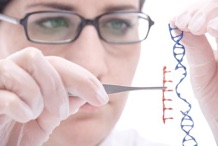“There is but one truly serious philosophical problem, and that is suicide. Judging whether life is or is not worth living amounts to answering the fundamental question of philosophy.
All the rest…comes afterwards.” (Camus)
Phil 335 - Syllabus (updated)
Required Books:
Lewis Vaughn, Bioethics - Principles, Issues, & Cases (Oxford UP, 2009), ISBN: 0195182820
[We are using the 1st edition - An easy way to find a copy online: http://www.bookfinder.com]
Oxford University Press has set up a website with Student Resources
Additional Required Readings will be posted on Blackboard [BB].
___________________________________
Extra-credit Opportunities:
Each EC paper will count as 1.50% towards your final grade. In order to get this credit, you have to go to one of the lectures (see list below), write 1p (single spaced) about the lecture (summary), and send it to me and Gus (via email) before the end of the term - by Sunday, 03/15 @ 5:00 pm.
1) Frans de Waal, “The Evolution of Connectivity: Empathy, Altruism, & Primate Social Skills”
When: Tuesday, March 10th at 7:30pm
Where: 182 Lillis Hall
2) Nancy Tuana, “Coming to Understand: Orgasm and the Epistemology of Ignorance”
When: Wednesday, March 4th, 2:00-3:30 pm
Where: 115 Lawrence Hall
___________________________________
Additional suggested readings/podcasts - every week I will be posting materials related to our course here. Please take advantage and read/listen/watch them.
Week 1 - In addition to our readings for the first week of class, I encourage you to read Ch. 1 “Bioethics: The Science of Survival” (pdf) from Van Rensselaer Potter’s Bioethics: Bridge to the Future (Prentice-Hall, 1971). This is the book where the very concept of bioethics was first coined.
Week 2 - We will talk about the importance of patient autonomy and paternalism. Cassandra C.’s case is a very important case surrounding these topics since the Chief Justice Chase T Rogers has ruled that the teen must undergo chemo against her will.
NYU’s bioethicist, Art Caplan writes on this case: Why Connecticut Teen Can't Say No to Chemo.
Bill Briggs brings also more information about this case: Connecticut Teen With Curable Cancer Must Continue Chemo: Court
NPR had also an interesting story: Can Connecticut Force A Teenage Girl To Undergo Chemotherapy? (thanks Gus!)
Week 3 - Peter Singer raises here an interesting argument against the sanctity of life view. See, “Sanctity of Life or Quality of life?”, Pediatrics, 72(1983):1, p.128-129
Week 4 - We will continue with ethical questions concerning moral personhood. As we mentioned in the class, science cannot provide us a definitive answer to our moral questions. Nonetheless, science can clarify some of the concepts we are employing in those debates. Here is a link to a lecture given by Scott Gilbert, Howard A. Schneiderman Professor of Biology, When Does Personhood Begin? at Swarthmore College.
Week 5 & 6 - Nick Bostrom, Director of the Future of Humanity Institute at Oxford University talks about the Status-Quo Bias in relation to genetic enhancement.
Bioethicists hold public debate ban on genetically engineered babies. More details from GenomeWeb.com
Week 7 - we talked about Lewontin’s work in biology and the role of science in defining the non-moral descriptive premises of moral arguments. More on the role of science, and how it can become ideology, listen to Lewontin’ s Massey Lectures.
Week 8 - PBS has recently aired a very interesting short video about Being Mortal. There is a specific focus on end-of-life medicine. Thanks Susan!
Recently, the question of the right to die got again in the news. Christie White, resident of CA, says: “I am suing the State of CA to help me achieve a peaceful and dignified death at the place and time of my choosing.” Also, The Washington Post notes that NPR host Diane Rehm emerges as a key force in the right-to-die debate.
Week 9 - The story of the twins, Eddie & Marc Verbessem (Belgium) raises some moral concerns. More details on Bioethics Forum.
Week 10 - Peter Singer wrote a great article in 2009 for the New York Times “We We Must Ration Health Care”




